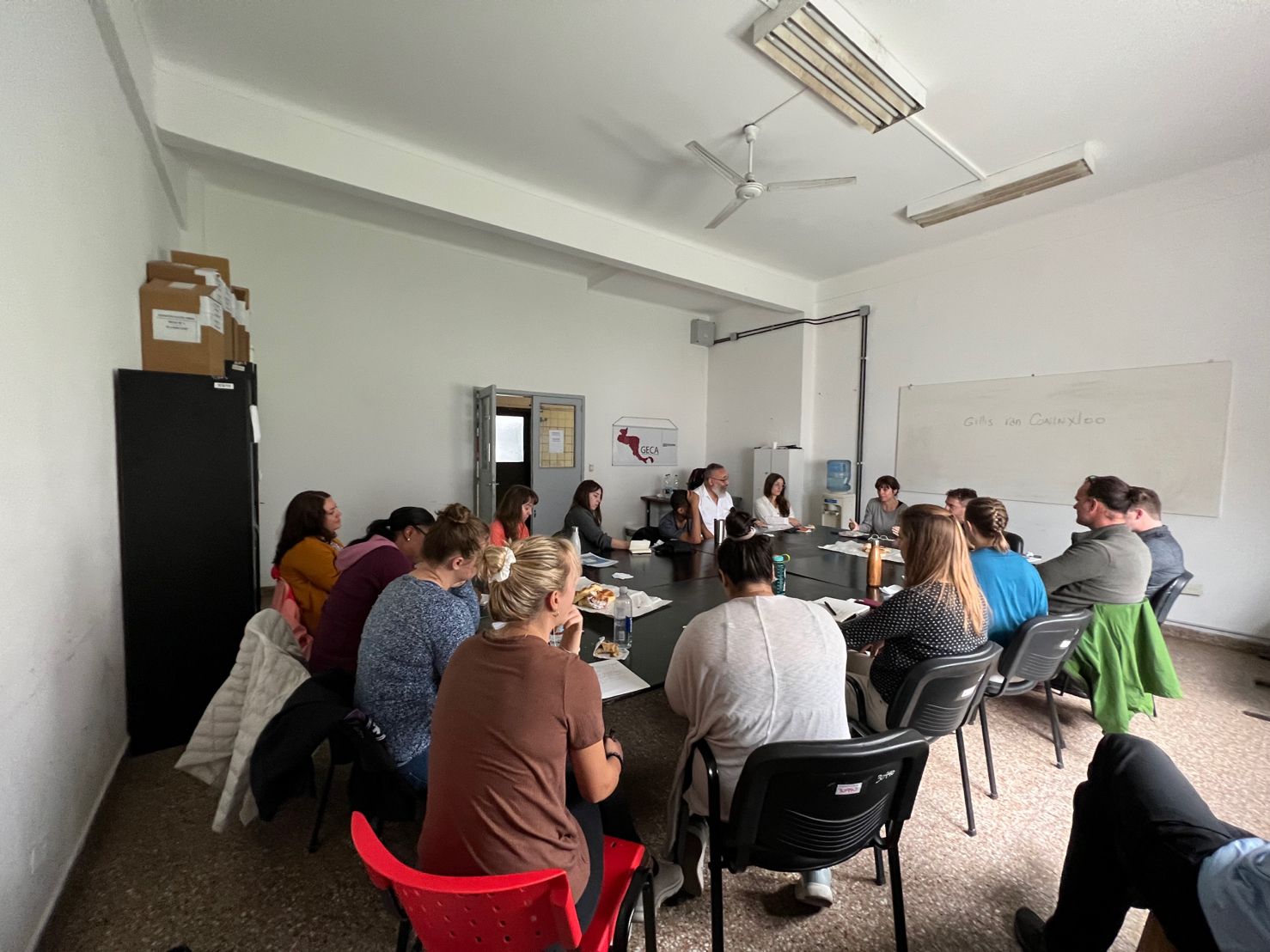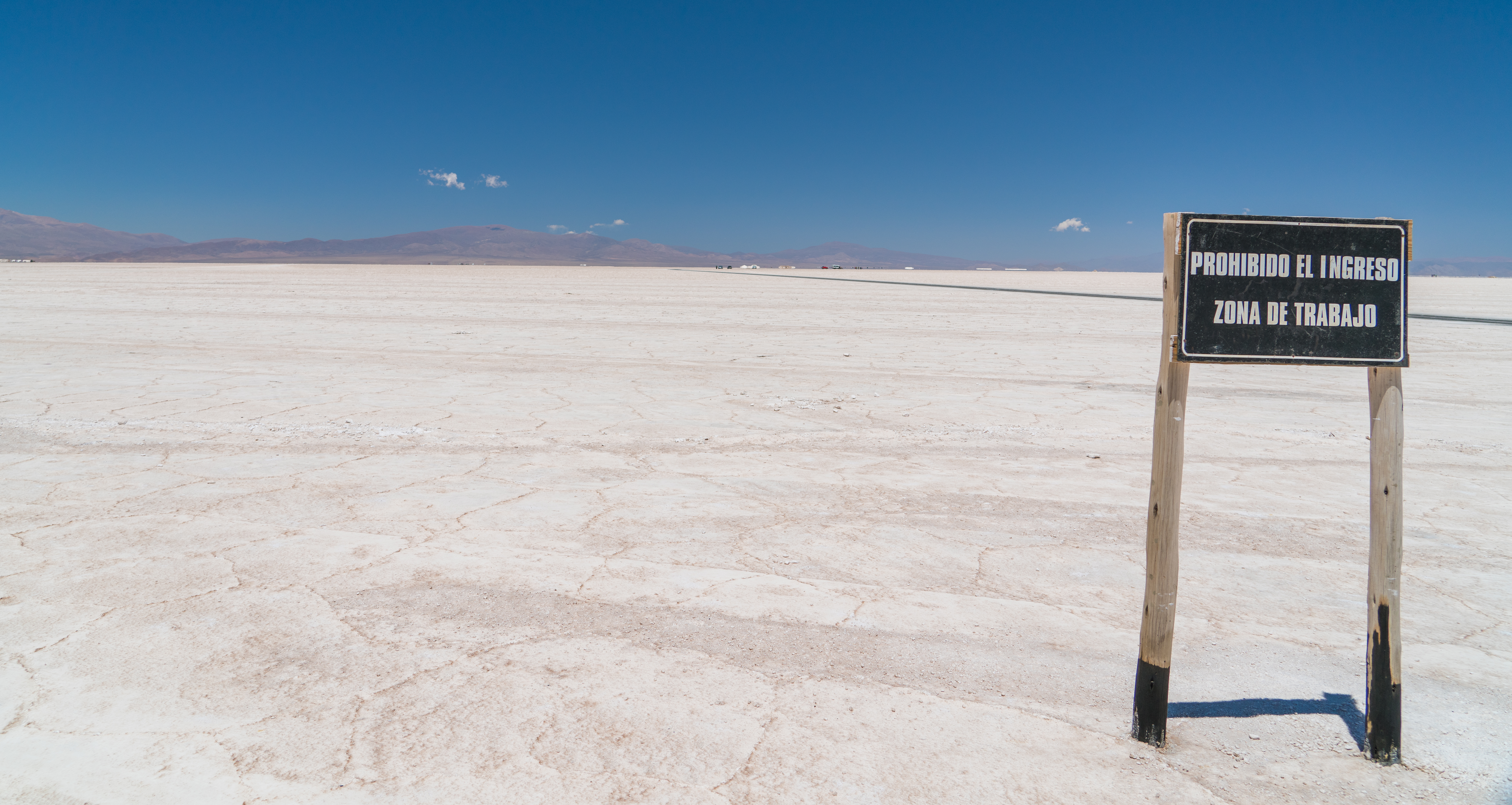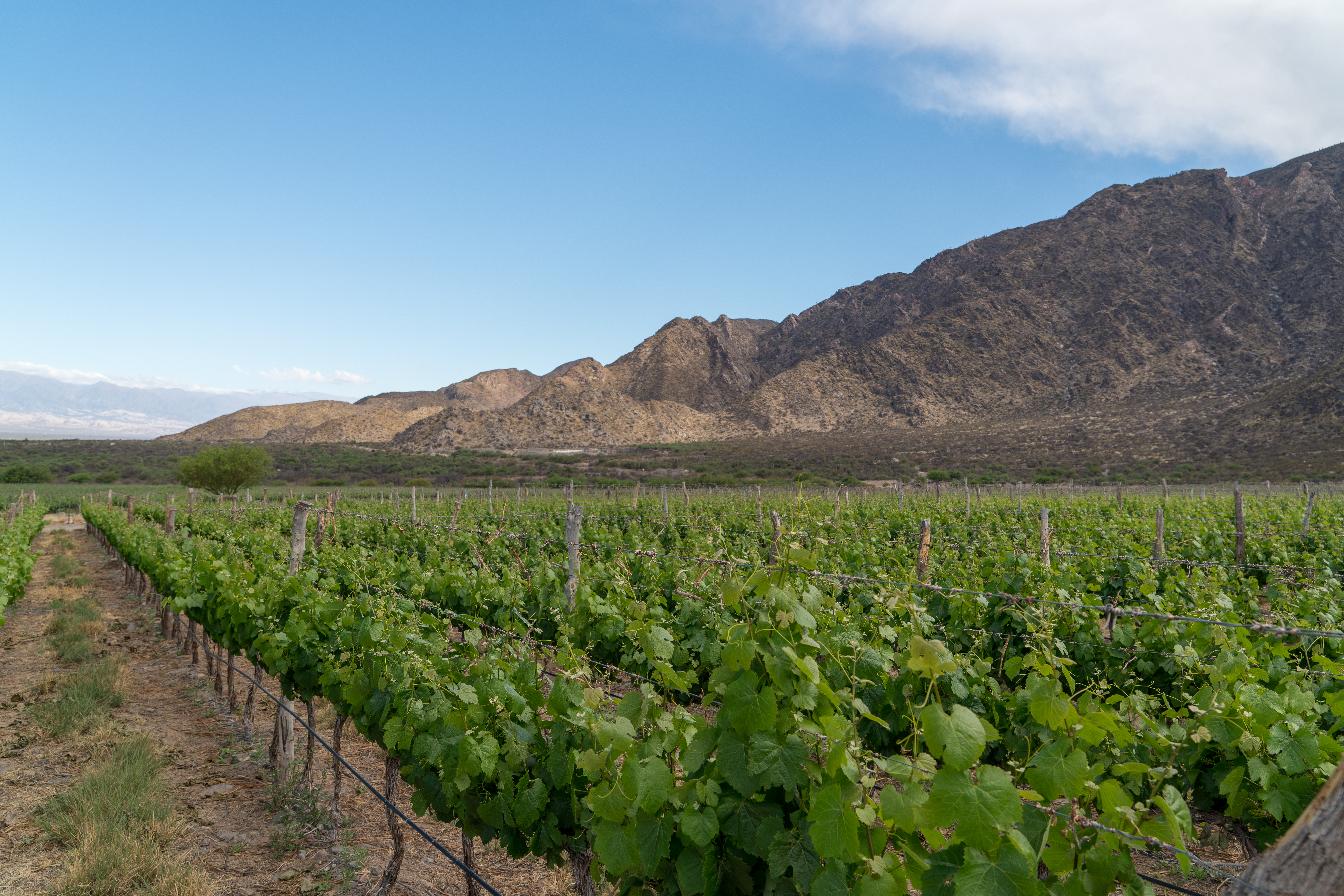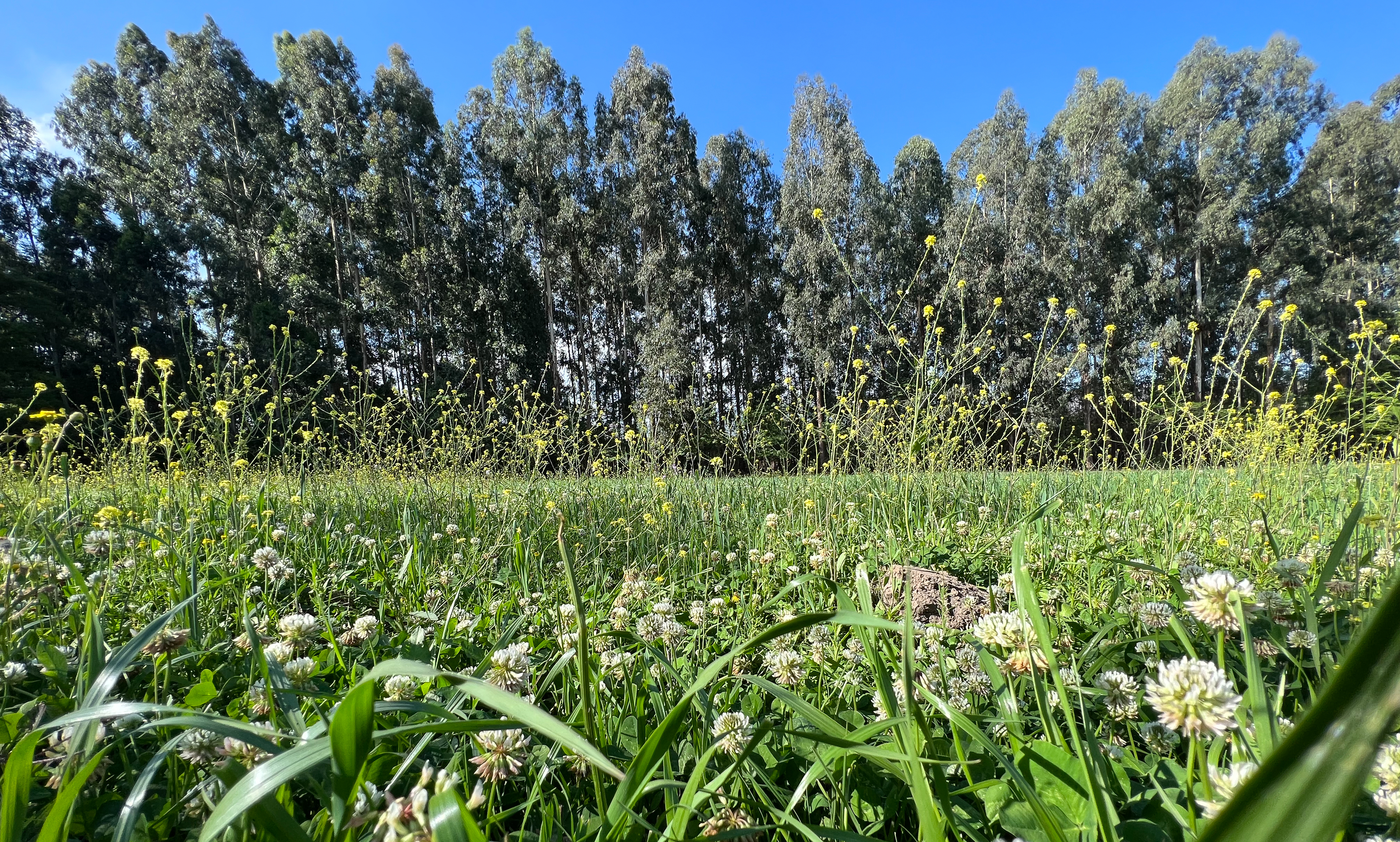From coastal city to high-altitude agriculture: a look at Argentina’s climate challenges
January 24, 2023

By Lindsay Kuczera
A complex history blending European and Latin American influences makes an unforgettable impression on everyone arriving in Buenos Aires, Argentina. A modern city founded centuries ago, where ancient trees tower overhead and colonial and contemporary architecture merge along the seemingly endless streets.
Students in Virginia Tech’s Master of Natural Resources program ventured to the Land of Silver for their Global Study trip to learn about the challenges of responding to the effects of climate change at federal and local scales and the perceptions of climate that affect the government’s and communities’ responses.
Argentina’s unique perspective
From the temperate coast to the high desert plateau, Argentina’s enormous variation of climatic regions supports diverse biota and cultures that coexist under one namesake. Looking at the Argentine experience, with its range of climate challenges facing the modern and sophisticated cities, Indigenous communities, high-altitude wine producers, agricultural sector, and mining industry, prepared students to think about these issues on both local and global scales.

“The people, language, and culture were so rich and inspiring. But if I put blinders on to these aspects, the landscape made me feel as if I was in a familiar place. The high desert, salt flats, and multicolored rocks might make you think you were in the Western United States. That was the root of my trip experience—that we have similar challenges between both of our countries, but how those challenges play out are quite different given our social and economic variations,” said MNR student Tim Getman.
Global policy angles
The Global Study started in Buenos Aires, where learners were introduced to Argentina’s domestic federal climate policy and how the U.S. government plays a role in partnering with and shaping climate adaptation in Argentina. The current economic crisis and high inflation were key points in every conversation. This allowed students to see how embedded and connected the issues of climate, economy, and development are for understanding possible policy solutions. The group met with Cecilia Nicolini—State Secretary of Climate Change, Sustainable Development and Innovation, and Advisor to the President of Argentina—to discuss the country’s approach to addressing climate change, adaptation, and lithium mining.
Argentina is part of the lithium triangle along with Bolivia and Chile, which contains 70 percent of the world’s known lithium reserves. This critical mineral is key to the electrification of the transportation industry and is used in electric car batteries as well as other renewable energy technologies. Many environmental, ethical, and logistical questions arise in the lithium discussion, including how to responsibly manage extraction, whether to export raw materials or process them domestically, and whether the local jobs are worth the impacts of mining.

Students had an opportunity to speak with members of the Lithium Forum—a self-organized national network of multi-disciplinary researchers who share ideas and resources—to discuss how bringing that lithium to market is a complicated matter with important environmental and economic implications.
A multi-sector community focus
Learners then ventured to Salta to engage with local agencies and communities to grasp climate policy and action at the provincial level. Salta is a mountainous area known for its colonial capital on the Inca road and the high-altitude wine region around Cafayate. It is also home to the ancient dry lakes, known as the salt flats, where lithium is extracted through deep lakebed mining.

“On the road to Salinas Grandes [salt flats], our scholars were confronted with the voices of the community in an important discussion regarding lithium. Some wanted to get it out of the ground and turn it into jobs for a nation struggling with serious inflation and a burdensome debt. Others were quite vocal about their concerns for the consequences of extraction,” said Paul Wagner, MNR Professor of Practice and co-lead of this Global Study program.
Students had the unique opportunity to explore this important global topic and visit the location where this issue is originating. “We got to go to ground zero to discover what the challenges are between the lithium resources in these dry lake beds and the global economy,” added Dan Marcucci, MNR Professor of Practice and program co-lead.

Escaping the city also opened the door to meeting with the agrotourism and agribusiness industries about climate adaptation. Wine is a large economic driver for Argentina, and the vineyards are already being affected by and responding to climate change. The majority of the winemaking in Argentina happens in the high-altitude arid region which requires irrigation. The wineries realized they were extracting water for vineyards at a faster rate than the aquifer could replenish, and are now strategizing ways to ensure long-term water availability for their business and the environment.
Argentina’s agriculture business, another economic driver, is finding ways to plant crops that use less water and are better adapted to drought. Students talked with local farmers and an agricultural co-op to understand how they are sustainably managing their land and their need for practicality in the face of climate change that affects food production. There is also an unexpected tie between lithium mining and farming.

Jen Smith, currently a Trainee Administrative Assistant at the National Science Foundation, shared this impactful memory about that connection from the trip: “We were taking a tour around a farm at Finca la Huella and, at one point, we just sat down in a field to talk a little bit more in depth about some of the issues facing the community. We sat down in the meadow, trees surrounding us, birds flying overhead, talking about the impact of lithium mining in the area. One of our guides said that the pollution from lithium mining wasn’t having a direct impact on that area, but it was going to have an overarching impact on the future of the country through transforming economic and job opportunities and the movement of populations across the nation. So it was really interesting to go from the daily workings of this farm and how they employ ecosystem restoration and supporting the community to discussing that far reaching power structure change that is going to be coming toward the community.”
Student Darian Ponsler also had a profound experience at Finca la Huella. She found that these rural communities, subject to the environmental harm left by industry, can actually lead climate adaptation and mitigation through community engagement and activism. “I found our time with Olga from Finca la Huella extremely beneficial. We were able to see a highly functioning farm that embodied a sense of community, placed an emphasis on educating younger generations, and sought out ways to continually improve, and Olga’s passion was absolutely exuberant,” said Darian.
Connecting federal and local climate response
By learning about climate change and adaptation through different lenses, including international and federal, sectoral, provincial, and community, students got a full picture of Argentina's challenges and opportunities. “It’s not an either/or proposition. It’s not totally top-down from the federal level, nor can it be totally bottom-up from the grassroots. It has to be integrated. What federal leadership in climate change proposes has to be cognizant that it is supporting and facilitating actions at fairly local levels,” Paul added.
Faculty from CLiGS worked very closely with their partners on the ground in Argentina (as well as for other Global Study trips) to help create an authentic and rich experience for students.


